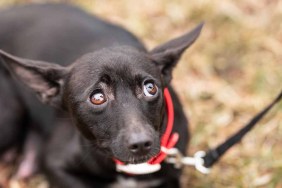Brachycephalic airway syndrome in dogs is a medical condition that involves a series of abnormal upper airway conditions that affect brachycephalic dogs.
You can usually recognize brachycephalic dogs by their short noses and flat faces. Common brachycephalic breeds include Pugs, Chihuahuas, and Pekingese dogs.
If you see signs that your dog might have breathing issues, then you must consult your veterinarian for a proper diagnosis and course of treatment. Here’s what you should know about the symptoms, causes, and treatments of brachycephalic airway syndrome in dogs.
Symptoms Of Brachycephalic Airway Syndrome In Dogs
Brachycephalic airway syndrome in dogs can result in range of symptoms. Some of the most common symptoms include:
- Breathing very quickly
- Snoring a lot
- Issues with physical activity
- High body temperature
- Coughing
- Fainting or collapsing while exercising
- Difficulties when eating and drinking
Causes Of Brachycephalic Airway Syndrome In Dogs

The cause of brachycephalic airway syndrome is mostly due to the shape of a dog’s head. Breeds of dog with short noses and flat faces that seem to suffer from this condition the most include:
- Chihuahua
- Pug
- Boxer
- Bull Mastiff
- Pekingese
- Lhasa Apso
- Boston Terrier
- French Bulldog
- English Bulldog
- Shih Tzu
Beyond specific breeds, other factors that might increase the chances of a dog developing this condition also include being obese and suffering from allergies.
Veterinary Treatments
If you think that your dog is suffering from brachycephalic airway syndrome, then your veterinarian will want to carry out a full examination along with asking questions about your dog’s breeding history. In most suspected cases, vets can use a fiber-optic scope to examine the trachea and larynx.
When it comes to treatment, the precise course of action will depend on the symptoms and underlying cause. In some cases, vets recommend oxygen assistance and use surgical procedures rectify airway issues.
In general, dogs suffering from this condition should try to avoid warm and humid weather and make sure that they are not medically obese.
Has your dog developed brachycephalic airway syndrome? How do you keep your dog comfortable and breathing normally? Tell us all about it in the comments below.




